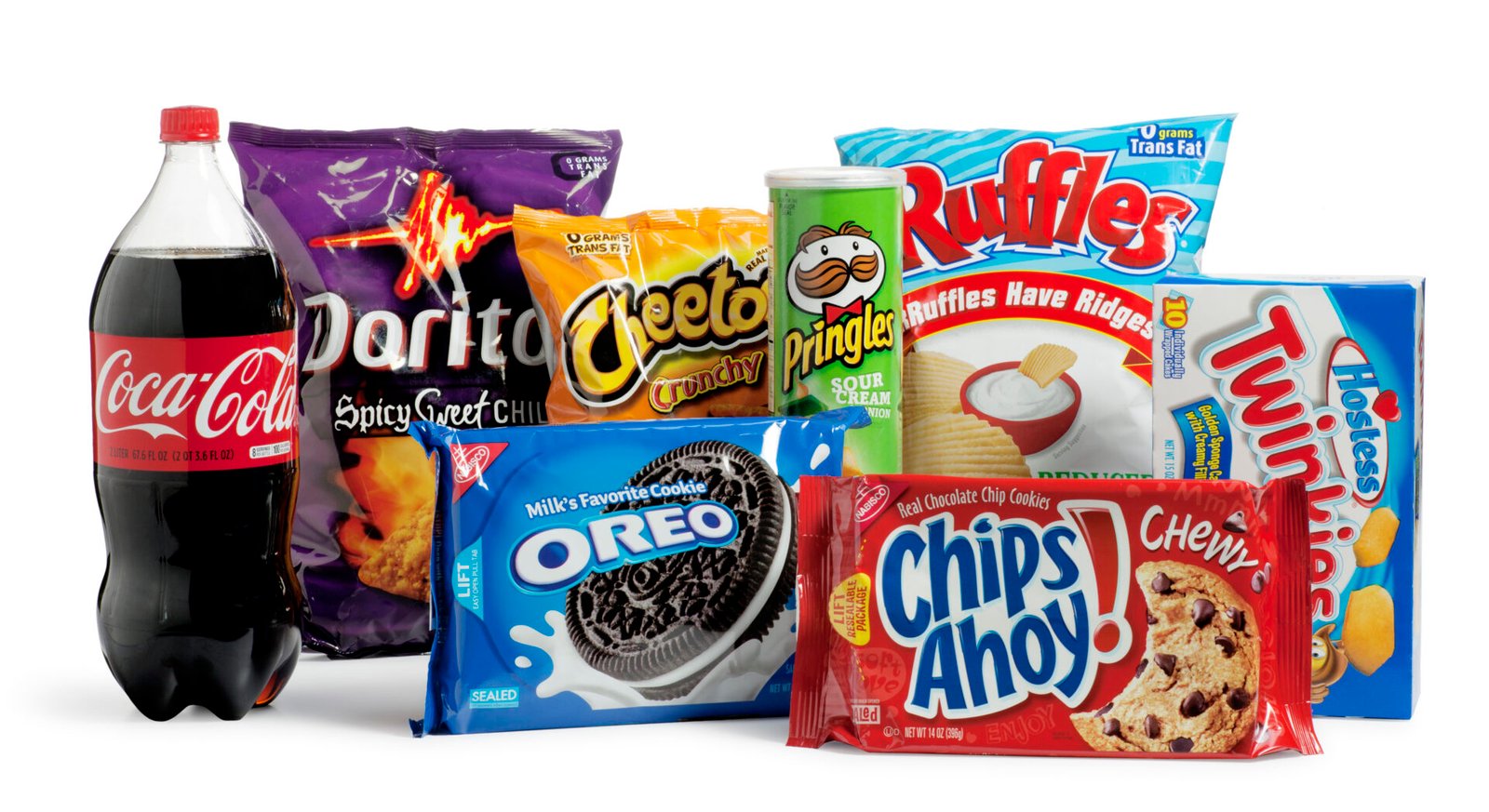The Rising Concern About Ultra-Processed Foods
Ultra-processed foods are now common in diets around the world, but their health impacts are causing alarm. These products range from snacks to ready meals, heavily featured in daily consumption. Recent research, notably a study published in the British Medical Journal (BMJ), highlights the health risks associated with these foods. High consumption of ultra-processed foods links to increased mortality rates and various chronic diseases. This post will define what qualifies as ultra-processed foods, review key findings from recent studies, and offer guidance on reducing their intake. As we discuss these concerns, we’ll also explore healthier dietary substitutions.
What Are Ultra-Processed Foods?
Ultra-processed foods encompass a broad range of products that are significantly altered from their original form through various industrial processes. These foods typically go through procedures such as extrusion, molding, and milling, and include numerous additives like preservatives, colorants, and flavor enhancers. Common examples include packaged baked goods snacks, candies, instant noodles, and frozen meals.
The Heart and Stroke Foundation describes these foods as having little nutritional value while being high in additives and unhealthy fats. They lack essential nutrients such as vitamins and fiber, which are crucial for a balanced diet. The primary allure of ultra-processed foods lies in their convenience. They are designed to be durable, ready-to-eat, or quick to prepare, making them highly appealing for the fast-paced modern lifestyle.

In addition, the consumption of ultra-processed foods is notably high in wealthier nations. A study by the Heart and Stroke Foundation found that in Canada, almost half of the daily calorie intake comes from ultra-processed products. This trend is reflective of a global shift towards diets dominated by engineered foods, which prioritize shelf life and ease of preparation over nutritional value.
The impact of these foods on health is increasingly evident, prompting calls for a dietary shift towards fresher, less processed options. As the discussion unfolds, the significant health risks linked to these foods will be explored, emphasizing the need for healthier alternatives in our diets.
In Canada, almost half of the daily calorie intake comes from ultra-processed products.
New Study: Increased Risk of Mortality
Recent studies have cast a spotlight on the severe health risks associated with ultra-processed foods. A pivotal study published in the British Medical Journal (BMJ) underscores the direct correlation between these foods and an increased risk of mortality. This extensive research tracked the long-term health outcomes of over 74,000 female nurses and more than 39,500 male health professionals across the United States.
The study method involved rigorous data collection over 34 years. Participants had no initial history of cancer, cardiovascular diseases, or diabetes. They provided health and lifestyle updates every two years and detailed food intake information every four years. By the end of the study, researchers noted 48,193 deaths, with significant numbers attributed to cancer, cardiovascular diseases, respiratory issues, and neurodegenerative diseases.
Analysis revealed that individuals consuming the highest amounts of ultra-processed foods—averaging seven servings per day—exhibited a four percent higher risk of total mortality compared to those consuming fewer—about three servings daily. This statistic highlights a clear linear relationship: the more ultra-processed foods consumed, the higher the mortality rate observed.
While the study focused broadly on ultra-processed foods, it is especially relevant for those commonly found in high-income nations like packaged baked goods. These items, which include various breads and snacks, often replace more nutritious options in daily diets, contributing significantly to the health risks discussed.
This statistic highlights a clear linear relationship: the more ultra-processed foods consumed, the higher the mortality rate observed.
The Health Risks of Ultra-Processed Foods
Ultra-processed foods are not just prevalent; they are also potentially harmful to our health. The consumption of these foods is strongly linked to several serious health issues.
Obesity and Diabetes: Frequent intake of ultra-processed foods correlates with higher obesity rates. These foods are often high in sugars, unhealthy fats, and calories, contributing to weight gain. The high sugar content also elevates the risk of developing Type 2 diabetes.
Heart Disease and Stroke: These foods typically contain high levels of sodium and saturated fats. Such components can lead to increased blood pressure and cholesterol levels, heightening the risk of heart disease and stroke.
Cancer: Certain chemicals and preservatives used in ultra-processed foods may contribute to cancer risk. Regular consumption can disrupt the body’s natural processes, potentially leading to the development of various cancers.
Neurodegenerative Diseases: The study noted an eight percent higher risk of neurodegenerative deaths among those who consumed the most ultra-processed foods. This suggests a possible link between diet and diseases like Alzheimer’s.
Gut Health: Ultra-processed foods can alter the gut microbiome. This change can weaken the immune system, making it less effective at fighting infections and preventing disease development.

Alternatives and Healthier Choices
To combat the negative effects of ultra-processed foods, incorporating healthier dietary choices is essential. Here are practical ways to reduce reliance on these products and improve overall health:
Choose Whole Foods: Opt for whole, minimally processed foods such as vegetables and animal proteins.
Read Labels Carefully: Become a savvy shopper by reading nutrition labels. Look for foods with fewer ingredients and minimal additives. This practice helps avoid hidden sugars and unhealthy fats often packed into ultra-processed foods.
Prepare Meals at Home: Cooking at home allows for complete control over ingredients. It encourages a shift away from processed options, favoring fresh ingredients that contribute to a healthier diet.
Plan Meals in Advance: Planning meals can reduce the temptation to reach for convenient ultra-processed foods. With a meal plan, you can ensure you have healthy ingredients on hand, making it easier to cook nutritious meals throughout the week.
Explore Healthier Substitutions: When baking or preparing snacks, consider using healthier alternatives to traditional ingredients. For instance, a flax seed-based baking mix like Keto PowerFlax Baking Mix offers a nutritious substitute for white flour in recipes, enhancing fiber, protein, and omega-3 fatty acid content.
Support from Local Bakeries: Encourage local bakeries to offer products made with healthier ingredients like Keto PowerFlax Baking Mix. This supports community health and provides options for consumers looking to reduce their intake of ultra-processed foods.
Keto PowerFlax Baking Mix: A Clean, Healthy Choice
Keto PowerFlax Baking Mix offers a promising solution for those seeking healthier baking alternatives. This versatile flax seed-based mix stands out as a clean-label product, perfect for commercial bakeries and health-conscious consumers alike.
Versatility in Baking
Keto PowerFlax Baking Mix can replace white flour in almost any recipe. Whether for bread, cookies, cakes, cinnamon buns, crackers or even pizza crust, this mix ensures each item remains delicious and nutritious.
Health Benefits
Packed with fiber, protein, and omega-3 fatty acids, Keto PowerFlax supports a balanced diet. It’s also vegan and kosher certified, making it suitable for a wide range of dietary preferences.
Ease of Use
The simplicity of this mix allows bakeries to produce clean label products without the need for additives. This feature not only simplifies the baking process but also appeals to customers looking for transparent and natural ingredients.

Cost-Effective:
Using Keto PowerFlax can help bakeries save on costs associated with managing multiple specialty ingredients. Its all-in-one formula provides everything needed to create high-quality, nutritious baked goods.
Market Expansion
By incorporating Keto PowerFlax into their offerings, bakeries can attract a broader customer base. Health-conscious consumers, those on ketogenic diets, and individuals with specific dietary restrictions will all appreciate products made with this healthy mix.
Customer Loyalty
Products made with Keto PowerFlax have a premium quality that consumers are willing to pay more for. This can lead to increased customer satisfaction and loyalty, as buyers often return for products that meet their dietary needs and taste preferences. Keto PowerFlax Baking Mix not only enhances the nutritional profile of baked goods but also offers commercial bakeries a unique opportunity to grow their market and improve customer retention.

Key Takeaways: Reducing Ultra-Processed Food Consumption
- Health Risks Identified: Ultra-processed foods contribute to obesity, diabetes, heart disease, cancer, and neurodegenerative diseases. Understanding these risks is crucial for making informed dietary choices.
- Research Highlights: Long-term studies have shown a direct correlation between high consumption of ultra-processed foods and increased mortality rates. These findings emphasize the need for dietary vigilance.
- Practical Alternatives: Transitioning to whole foods, reading labels, planning meals, and cooking at home are effective strategies to decrease reliance on ultra-processed products.
- Commercial Opportunities: Bakeries can use Keto PowerFlax Baking Mix to cater to health-conscious consumers, providing a nutritious alternative to traditional flour-based products.
- Consumer Benefits: Embracing healthier options like Keto PowerFlax Baking Mix not only supports individual health but also encourages local businesses to adopt more sustainable, health-focused practices.
Final Thoughts
As we confront the growing health issues associated with ultra-processed foods, it becomes imperative to seek out and support healthier alternatives. Keto PowerFlax Baking Mix represents a significant step forward in this journey, offering both health benefits and commercial opportunities. By choosing products made with this mix, consumers can enjoy delicious, nutritious baked goods while supporting a shift towards cleaner, more sustainable eating habits.
For commercial bakeries, adopting Keto PowerFlax Baking Mix not only aligns with a growing consumer demand for healthier options but also offers a competitive edge in a market saturated with less nutritious choices. Ultimately, reducing our intake of ultra-processed foods and supporting products that offer genuine health benefits will lead to better health outcomes and a more informed public.
Keto PowerFlax Baking Mix: Keto & So Much More!

- Commercial Bakeries: you can easily produce delicious flax-based keto-friendly products which are clean label, high protein, high fiber and plant-based!
- Works with your current equipment and baking processes.
- Recipes provided on all bulk orders, with ongoing customer support
- Worldwide shipping
- Get in touch with us today!

What to Read Next:
- Harmful Additives in Foods: Emulsifiers Linked to Diabetes
- Unveiling the Truth: Harmful Additives in Your Bakery Favorites
- Best Appetite Suppressant: Study Says We’re ‘Protein Hungry’
References
- Association of ultra-processed food consumption with all cause and cause specific mortality: population based cohort study. BMJ
- Ultra-processed foods – a scoping review… Food and Nutrition Research
- Differential association of dietary scores with the risk of type 2 diabetes… European Journal of Nutrition
- Consumption of u-p foods is associated with depression, mesocorticolimbic volume, and inflammation. Journal of Affective Disorders
- Ultra-processed foods and the development of obesity in adults. European Journal of Clinical Nutrition
- Ultra-Processed Foods, Diet Quality and Human Health. Nutrients

